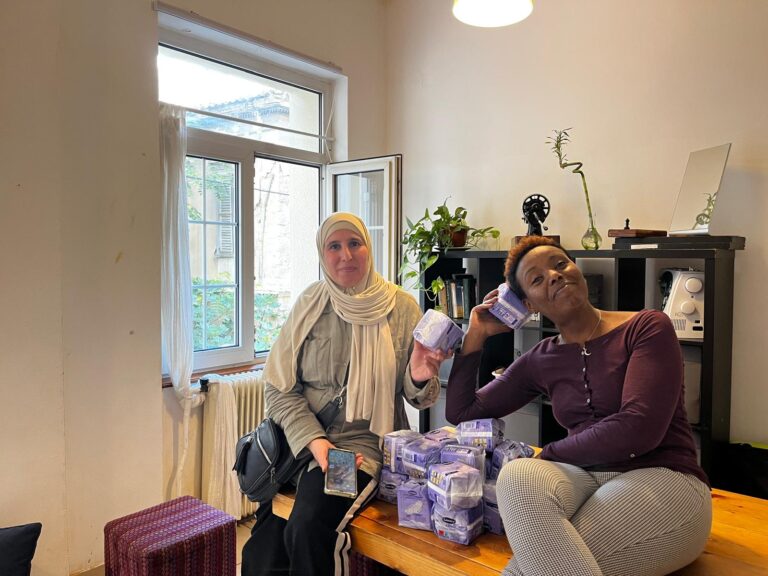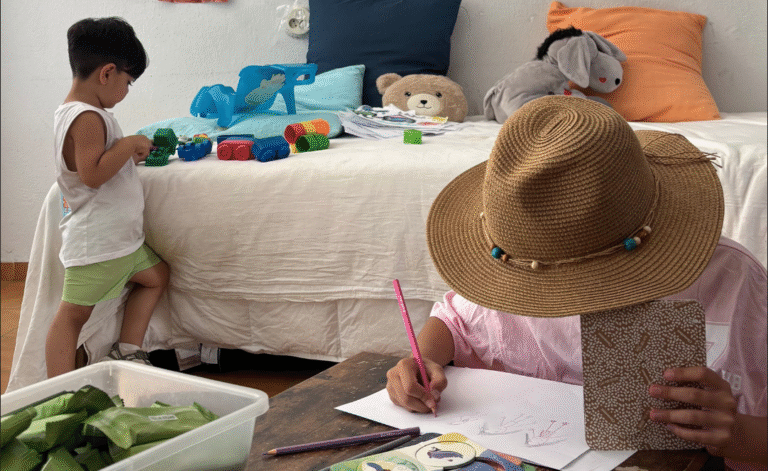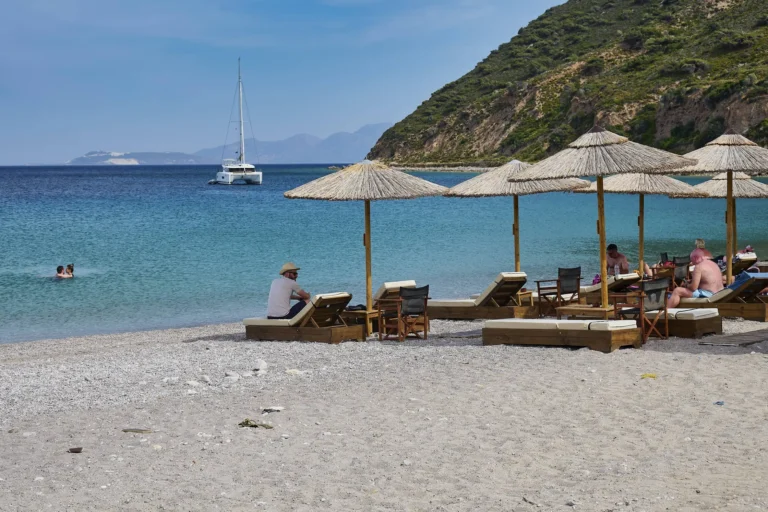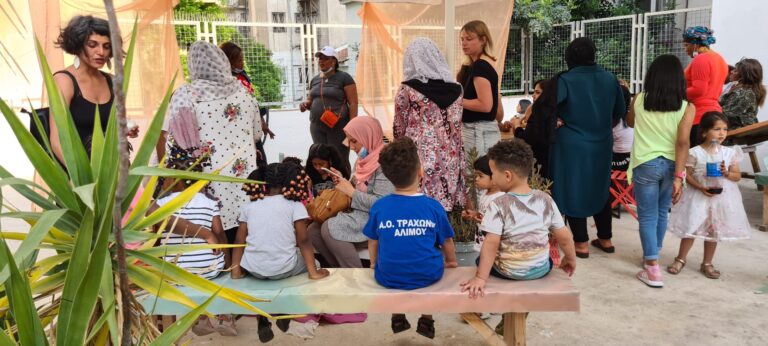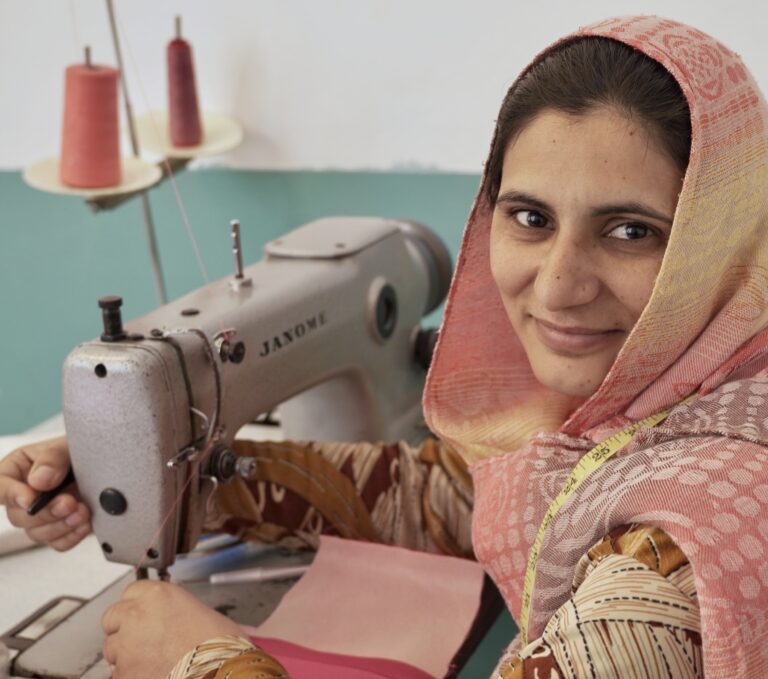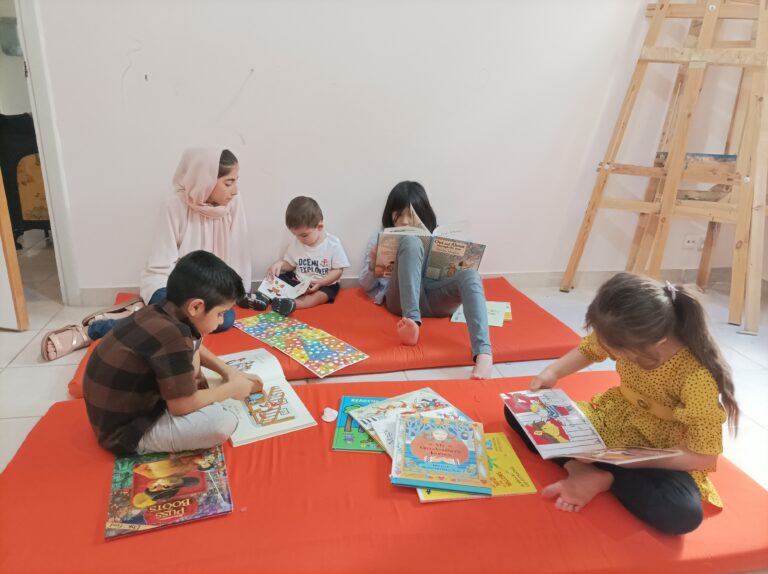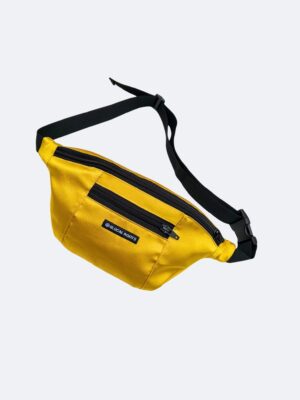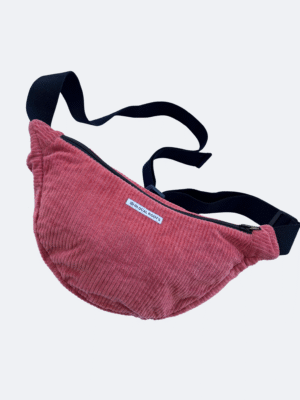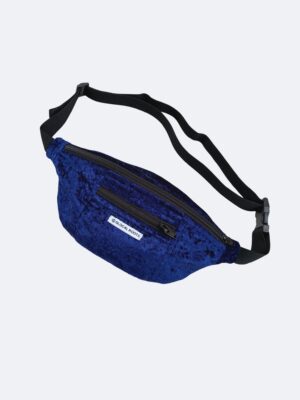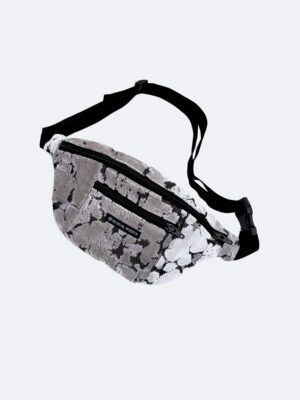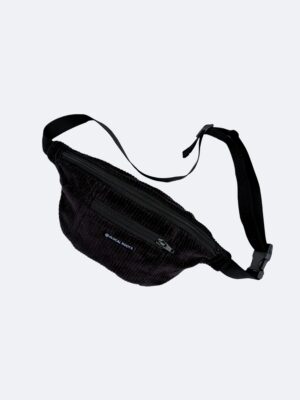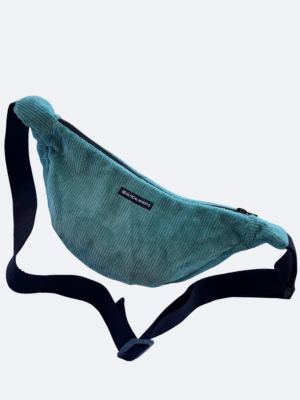Education is a fundamental human right, enshrined in the 1989 Convention on the Rights of the Child, and the 1951 Refugee Convention. To deny it is to deny a child the chance to grow, to be safe, and to belong. Education is a lifeline. Yet, this right remains out of reach for many refugee children with 49% being out of school. During humanitarian crisis education is sidelined. Between 2010 and 2017 less than 3% of humanitarian funds were allocated to education. Even though education is at the core of the realization of so many other human rights. To claim, enjoy and protect your rights – whether they be social, economic, cultural, political or civil – education is a fundamental tool. School plays a key role in every aspect of a child’s development. Going beyond cognitive skills like reading and numeracy, it also nurtures social and emotional growth. The classroom offers structure, routine, and safety. It is where children learn to cooperate, to build relationships, and build self-confidence. School also introduces children to sport. More than a simple form of recreation, physical education provides children with the opportunity to connect, to practice teamwork, and to experience the joy of shared achievement. Sport fosters resilience and self-worth.
